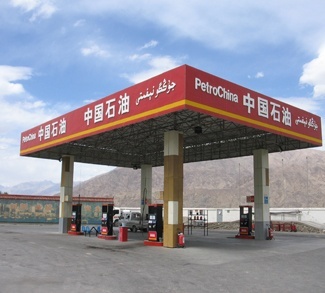In the wake of the Xi-Obama summit, both American and Chinese media outlets have stressed how ‘constructive’ the meetings were. But given the existence of certain structural impediments in the US-China relationship, was the summit doomed before it even started?
The BBC’s Mark Mardell betrayed a self-admitted flair for the dramatic when he suggested that the Sunnylands summit between President Obama and President Xi Jinping was meant to identify the bilateral flashpoints that could trigger World War III. Though the statement smacks of hyperbole, it does contain a grain of truth insofar that the most dangerous flashpoints in Sino-US relations can at best be soberly delineated rather than actively resolved.
For example, the unresolved status of Taiwan will remain a structural impediment in the Sino-US relationship for the immediate future, particularly given continued US arms sales that are, in a sense, legally mandated in the United States by the Taiwan Relations Act. The US-Japanese security relationship is another irreconcilable difference, as the Diaoyu/Senkaku Island dispute is not likely to disappear any time soon and the US has made it clear that the disputed island chain falls under the scope of the US-Japan bilateral alliance.
Then there is the US-China trade imbalance, which falls into somewhat of a gray area. Though the US presumably applies pressure in private in regards to the value of the RMB, Chinese leaders will continue to follow their own economic agenda based on the eventual transition from an export-based to a domestic consumer-driven economy. Yet it might be that the Obama administration is about to experience some luck on this front, as both Xi Jinping and Li Keqiang have made it clear that tough reforms lie ahead for the Chinese economy, reforms that will doubtlessly seek to liberalize China’s financial system and bring about a more valuable RMB.
This brings us to the issues that the summit could hope to have a substantive impact on. First and foremost there’s the blossoming military-to-military relationship between the two countries. When asked about bilateral military exchanges during the post-summit press conference, President Obama said that the issue had been discussed and that both the US and China would be, “taking steps to institutionalize and regularize” such discussions.
Of course, a big part of any military-to-military exchange would pertain to cyber security, which is another issued that loomed large over the summit. Given the immovable (and thus unmentionable) nature of the aforementioned hurdles in the US-China bilateral relationship, cyber security took centre stage as an issue in which progress could be made. As some might recall, cyber security figured prominently in the American media in the months leading up to the summit, particularly in the form of allegations that a cyber-attack originating in China managed to steal several of the Pentagon’s most advanced weapons platforms.
While no details were given by President Obama in regards to their discussions about cyber security, it is highly unlikely that the summit would bring an end to Chinese cyber-attacks. And far from hoping that Beijing will simply stop the intrusions, it seems that the Obama administration has simply decided to respond in kind. According to a leak published in the Guardian newspaper, President Obama drew up a list of targets for US hackers to hit overseas. The leak also detailed new efforts to increase coordination between government and private sector networks in staving off foreign cyber-attacks.
And finally, there was the one issue that both sides could wholeheartedly agree on: the denuclearization of North Korea. Yet recent events on the Korean peninsula would unfortunately suggest that neither side has the leverage to make it happen.
In sum, the Xi-Obama summit was a triumph of style over substance. It appears that nothing solid was accomplished, and that the stumbling points in Sino-US relations remain fixed. But that’s not to say the summit was a complete failure. It was, after all, the first face-to-face meeting between the two leaders, and a chance to thresh out the opposition.
Let’s just hope that these baby steps are ultimately built upon.
Zachary Fillingham is a contributor to Geopoliticalmonitor.com



